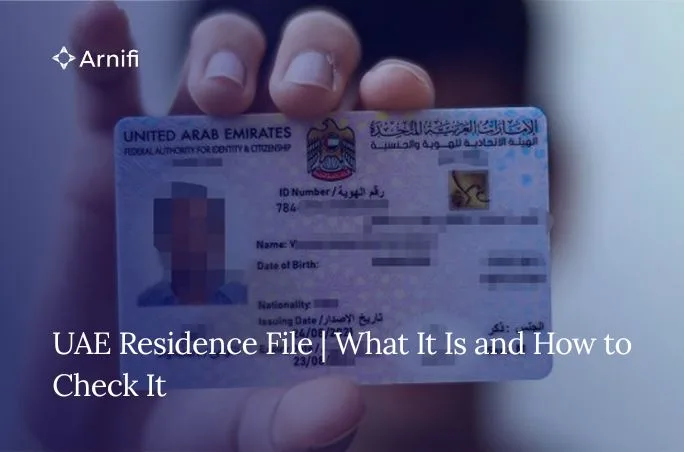How To Calculate Gratuity In UAE: A Comprehensive Guide
by
Shethana
Jul 16, 2024  14 MIN READ
14 MIN READ

In the UAE, there are clear rules to figure out how much gratuity someone should get when they leave a job. These rules make sure everyone gets treated right and gets what they deserve in terms of gratuity. The Dubai Development Authority has even made a tool called a gratuity calculator. With it, you can easily see how much your end-of-service money will be by looking at your basic salary and how long you’ve worked.
When it comes to getting this kind of payment, the labor law in the UAE lays down who qualifies for it, what kinds of work contracts there are, and other details that might change whether you can get gratuity or not. It’s really important for both bosses and workers to know these laws well so that everyone does things correctly and people get their fair share based on their basic salary and years of service.
Eligibility Criteria for Gratuity
In the UAE, to get gratuity pay, workers need to check off some boxes first. A big one is sticking with the same employer for a certain amount of time without a break. How long you’ve got to have been there changes based on what your job contract says.
For those who’ve hung in there for at least a year straight, they’re in line for gratuity cash. So if someone hasn’t hit that one-year mark yet, they won’t get this bonus. The total time you’ve worked plays a huge role when it comes down to figuring out how much money that’ll be since it’s all about how long you’ve been on board.
Who Qualifies for Gratuity in the UAE?
In the UAE, if you work in the private sector and have been with your company for at least a year without any breaks, you’re on track to get gratuity pay. Here’s how it works: The amount of time you’ve worked really matters when figuring out how much gratuity money you’ll get. For folks who’ve stuck around between one and five years, they can expect full gratity based on certain days’ worth of their basic salary. If someone has hung in there for over five years, they stand to receive even more money because the calculation uses more days.
With that said, getting this gratuity payment isn’t automatic; both the employee and employer need to be on board with it. There are cases where if an employee leaves suddenly or gets fired without following proper rules, they might lose out on this benefit. But as long as everything is done by the book according to labor law standards—like giving notice—the employee should still qualify for their well-earned gratuity.
Factors Affecting Gratuity Eligibility
In the UAE, a few things can change whether you get gratuity or not. One key thing is what kind of job contract you have. There are two main kinds: limited and unlimited contracts, and each has its own way to figure out your gratuity.
How long you’ve worked somewhere matters too. The longer you’ve been at a job, the more gratuity money you should get when leaving. Also, how much notice you need to give if quitting or being let go affects your eligibility for gratitude.
It’s really important for both bosses and workers to know about these details so they understand how it all works with getting their deserved gratitude amount according to labor law rules.
Calculating Gratuity for Different Contract Types
In the UAE, how much gratuity you get when you leave a job depends on what kind of contract you had. There are mainly two kinds: limited and unlimited contracts. Each one has its own way to figure out your gratuity based on how long you’ve worked there.
With limited contracts, they look at the years of service to calculate your gratuity. The math changes if you’ve been there less than a year, from one to five years, or over five years.
On the other hand, for those with unlimited contracts, it’s all about how many years you were employed. The calculation varies if your employment lasted less than a year, between one and three years or went beyond three years.
Gratuity Calculation for Limited Contracts
When figuring out how much gratuity someone who’s on a fixed-term contract gets, it all boils down to how long they’ve been with the company. This whole process takes into account when their contract wraps up and what their basic pay is.
For folks who haven’t hit the one-year mark yet, there’s no gratuity money coming their way. But if they’ve stuck around for anywhere between one to five years, they’re in line for full gratuity. This means getting paid extra cash based on a set number of days’ worth of their basic salary for each year worked. And if someone has been part of the team for over five years, that full gratuity amount jumps up even more.
To work out this special bonus amount, an employee needs to first figure out what they make daily by dividing their monthly earnings by 30. Next step? They multiply this daily wage by however many days are meant to represent each year of service according to the rules laid out above—the outcome here is what they’ll pocket as gratitude from the employer per every year spent at work.
Gratuity Calculation for Unlimited Contracts
When figuring out how much gratuity someone who works on an unlimited contract gets, it all comes down to how long they’ve been at the job and what their last basic salary was. Here’s a simple breakdown:
- For folks who haven’t hit the one-year mark yet, there’s no gratuity payment waiting for them.
- Between one and three years of service? They’re looking at getting 21 days’ worth of their salary as gratuity, but only a certain percentage of it.
- Once someone has worked more than three years, things get a bit trickier. Now we have to look closely at both the number of years they’ve put in and that final basic salary figure.
To work out your gratuitous amount due:
- Start with finding your daily wage by dividing your monthly pay by 30.
- Next up, multiply this rate by either one-third or two-thirds (depending on what applies) along with the specified number of days meant for calculation.
And there you have it—the sum total is what you’ll receive as your gratuity amount based on those key factors: basic salary, number of years worked, and obviously that important figure—your last basic salary.
Key Components in Gratuity Calculation
When figuring out gratuity in the UAE, two main things matter: how much you earn as your basic salary and how long you’ve worked. These elements are key to working out what your gratuity will be.
For this calculation, only your basic pay counts. Money for other stuff like travel or where you live doesn’t get added in.
How many years you’ve been at the job also plays a big part. The longer someone has worked somewhere, the bigger their gratuity check can be. To make these calculations easier, there’s a handy tool called a gratuity calculator from the Dubai Development Authority that anyone can use.
Role of Basic Salary in Gratuity Calculation
In the UAE, how much gratuity you get is mainly based on your basic salary. This part of your pay doesn’t include extra stuff like money for travel or where you live; it’s just the fixed amount you agree on.
For figuring out your gratuity, knowing two things is key: what your basic salary is and how long you’ve worked there. These details are plugged into a formula to work out the gratuity, which changes depending on whether you’re under a limited or unlimited contract.
Understanding what counts as your basic salary and its impact on calculating your end-of-service benefit is really important. You can find this info in your job contract or by having a chat with someone from HR at work.
Impact of Service Duration on Gratuity Amount
The longer an employee sticks with a company, the more gratuity they get. This is because the amount of money you receive as gratuity depends on how long you’ve been working there.
For those on fixed-term contracts, every extra year they work adds to their gratuity. It’s calculated using a certain number of days’ worth of their basic pay for each year they’ve worked.
On the other hand, people with open-ended contracts see their gratuity grow with every additional year too. Here, it’s figured out by taking 21 days’ salary for each year spent at the job.
Knowing how your time at a company affects your gratuity is pretty important. It helps employees understand just how much value each year of service brings to their final gratuitous amount, making them appreciate the importance of sticking around and accumulating more years of service.
Legal Rights and Gratuity Claims
For expat workers in the UAE, it’s really important to know about their legal rights and how gratuity claims work. The UAE Labor Law sets out all you need to know about getting gratuity pay when you’ve been working there. According to Article 51 of this law, if you’re an expat working for a private company, how much gratuity money you get depends on two things: how long you’ve worked there (your years of service) and what kind of contract you have. It’s key that employees make sure their bosses are doing right by them when it comes to paying out this end-of-service benefit. If things don’t look right or your employer isn’t following through with these obligations, remember that as an employee, it’s within your rights to raise a complaint with the people in charge or even get some legal advice on claiming what’s yours. To stay ahead of any issues regarding your entitlements under labor laws like the UAE Labor Law—especially concerning matters like gratitude pay—it might be wise for workers not just rely on hearsay but actually take time consulting someone who knows these rules inside out.
Recent Changes to Gratuity Laws in the UAE
Recently, the UAE made some updates to its gratuity laws to better look after workers’ rights. These adjustments are all about making sure employees get a fair deal when their job ends. With new rules added to the UAE Labor Law, figuring out and paying gratuity has become clearer for everyone involved. This means both workers and bosses have an easier time knowing what they’re supposed to do. Staying on top of these changes is key for everyone so that things run smoothly without any legal hiccups.
Overview of Updates in 2023
In 2023, the UAE labor laws regarding gratuity underwent significant updates to enhance employee benefits and strengthen the legal framework. The following table provides an overview of the key updates in 2023:
| Update | Description |
| Calculation of Gratuity | The calculation method for gratuity pay was revised to ensure fair compensation based on the employee’s last basic salary and years of service. |
| Timely Payment | Employers are now required to settle all end-of-service entitlements within 14 days from the employee’s last working day. |
| Increased Transparency | The changes in the law aim to provide more transparency and clarity in gratuity calculations, making it easier for employees to understand their entitlements. |
| Strengthened Legal Rights | The updates to the law have strengthened the legal rights of employees, providing them with more protection and recourse in case of gratuity disputes. |
These updates reflect the UAE government’s commitment to ensuring fair treatment and compensation for expat workers, enhancing the overall work environment in the country.
Implications for Employees and Employers
The recent updates to the UAE’s gratuity laws are a big deal for both workers and bosses. For folks working, these changes mean they now have a clearer picture of how their gratuity money is figured out when it’s time to leave their job. It makes sure people get paid fairly for the time they’ve put in at work, based on what their last basic salary was and how many years they served. This not only gives them stronger legal standing but also sets clear deadlines for when they should get this part of their pay.
On the flip side, companies have more on their plate with making sure gratuities are paid right and on time following these new rules. They need to do the math correctly considering an employee’s service length and what that last paycheck looked like before saying goodbye. Plus, there’s this 14-day window given to settle everything about end-of-service benefits which employers really can’t ignore if they want to steer clear of any legal headaches.
In essence, by updating these laws around gratuity payments in the UAE, it aims at fostering fairness and openness in workplaces which is good news all around – whether you’re clocking in every day or signing those checks.
Conclusion
Wrapping things up, it’s really important for both workers and bosses in the UAE to get how gratuity is figured out. This makes sure everyone gets paid fairly and follows the work laws. By understanding what gratuity means, who can get it, how to calculate it, and keeping up with any new rules, people can feel more at ease about the whole thing. It’s key to clear up any wrong ideas and protect your legal rights while also staying on top of changes in gratuity rules. Having this knowledge lets folks make smart choices about their job benefits and look after their money matters better. Always keep learning about these laws so you can defend your rights and what you’re owed when working in the UAE.
Frequently Asked Questions
How is gratuity calculated if an employee resigns?
When employees decide to leave their job, how much gratuity they get is tied to the number of years they’ve worked there. For those who have been at the company from 1 up to 5 years, their gratuity is figured out using 21 days of their basic salary for each year they’ve worked. On the other hand, if someone has stuck around for more than 5 years, then calculating their gratuity involves taking into account 30 days of basic salary per year instead.
Can gratuity be forfeited under certain conditions?
Under the UAE Labour Law, there are specific situations where an employee might not get their gratuity. For instance, if someone is fired for reasons mentioned in Article 120 or decides to quit without giving any notice, they could end up losing their right to this benefit. It’s really important for workers to know about these rules and understand when they might have to say goodbye to their gratitude payment.
What happens to gratuity in case of employee death?
When an employee passes away, it’s really sad. But there’s a rule in the UAE Labor Law that helps out their family during this tough time. The money they were supposed to get when they stopped working, called gratuity payment, is given to the people they’ve chosen as their legal heirs or next of kin. This includes the gratuity amount and other benefits meant for after someone leaves a job. It’s all about giving some financial help to the family of the person who died.
Also Read: WPS Compliance in the UAE: A Complete Guide
About Arnifi
Arnifi is digital first Corporate service provider helping companies enter the Middle East region, starting with UAE and Saudi Arabia markets. Founded and backed by professionals from Amazon, Souq and other large companies operating in KSA – the team understands what it takes to succeed as a startup in both UAE and Saudi Arabian markets, apart from going through the setup process multiple times. Arnifi will provide a truly digital experience to entry and scale up of companies both UAE and Saudi Arabia. Discover tailored solutions and strategic partnerships that propel your business forward. Check out at – www.Arnifi.com for more details.
Also Read: Payroll Rules in Dubai and UAE: A Step-by-Step Guide
Top UAE Packages

Related Articles
Top UAE Packages



